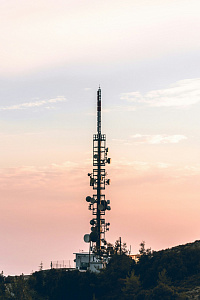Penalties for non-compliance with ad labeling laws
A year ago, the provisions of the law on advertisingArticle 18.1 of Federal Law No. 38-FZ dated 13 March 2006 “On advertising”, binding advertisers, advertising distributors and advertising system operators to (1) submit information about ads distributed on the Internet, (2) to receive a special identifier from the advertising data operator (“ADO”), (3) place that special identifier in the advertising material and (4) put an “ad” sign specifying information about the proprietor became effective.However, until now the laws have not established any liability for breach of the abovementioned responsibility (except for the duty to put an “ad” sign and information about the proprietor). This was largely due to the fact that Roskomnadzor (Federal Service for Supervision in the Sphere of Communications, Information Technologies and Mass Media) as the body monitoring discharging of a number of key responsibilities in this area, has not been previously granted proper authority to impose administrative sanctions on the subjects of civil law transactions.
From 1 September 2023, the amendments to the Administrative Offenses Code of the Russian Federation (“RF AOC”) that were adopted this June, became effective; they introduce new penalties for the following beaches related to “labeling” of ads on the Internet:
- non-discharging, by an advertiser, advertising distributor and advertising system operator, of the responsibility to provide information or the responsibility to ensure provision of information on ads distributed on the Internet to Roskomnadzor, or breach of the established deadlines for discharging of the foregoing responsibilities, or provision of incomplete, untrue, irrelevant information to the abovementioned body while discharging such responsibilities (a penalty imposable on individuals ranges from RUB10,000 to RUB30,000; a penalty imposable on officials ranges from RUB30,000 to RUB100,000; a penalty imposable on legal entities ranges from RUB200,000 to RUB500,000);
- ad distribution without an identifier assigned by the ADO or breach of the requirements related to its placement (a penalty imposable on individuals ranges from RUB30,000 to RUB100,000; a penalty imposable on officials ranges from RUB100,000 to RUB200,000; a penalty imposable on legal entities ranges from RUB200,000 to RUB500,000);
- non-discharging, by the ADO, of its responsibility to transfer to Roskomnadzor the information about disseminated ads submitted to it in accordance with the ad laws, or non-discharging, by the ADO, with the procedure established for liaison with the said body, or submitting by the ADO to the foregoing body of incomplete, untrue, irrelevant information, or breach, by the ADO, of the established requirements covering ad identifier, its content, the procedure for and terms of its assignment, storage and submission to the body in question (a penalty imposable on officials ranges from RUB100,000 to RUB200,000; a penalty imposable on legal entities ranges from RUB300,000 to RUB700,000).
It is important to note that these newly introduced amendments to the ad laws affect not only professional participants of the advertising market. Sanctions are often imposed on advertisers as well. From the practical standpoint, this means that one should take these novelties into account while developing advertising campaigns. In particular, it is important to monitor ad labeling and submission of information to the ADO.
Penalties imposable on social networks’ owners and aggregators
On 1 September, those amendments to the RF AOC that provide for an additional package of penalties imposable on the owners of social networks, as well as on other persons and that are related to the breach of the responsibilities to monitor and block “banned” content became effective. In particular, the foregoing amendments set:- a penalty imposable on officials that ranges from RUB200,000 to RUB400,000; a penalty imposable on legal entities that ranges from RUB600,000 to RUB1m) if the social network owner fails to publish the annual report on the results of handling complaints regarding information distributed in breach of law and the social network monitoring results;
- a penalty imposable on individuals that ranges from RUB50,000 to RUB100,000; a penalty imposable on officials that ranges from RUB200,000 to RUB400,000; a penalty imposable on legal entities that ranges RUB800,000 to RUB4m) if the social network owner fails to discharge the responsibility to monitor the social network and/or to block “banned” content, or fails to comply with Roskomnadzor requirement to lift such a block;
- a penalty imposable on individuals that ranges from RUB100,000 to RUB200,000; a penalty imposable on officials that ranges from RUB500,000 to RUB800,000; a penalty imposable on legal entities that ranges from RUB4m to RUB6m) if the social network owner fails to comply with Roskomnadzor ordinances to monitor the social network to detect content confusingly similar to the one that was previously “blocked” by Roskomnadzor.
Antimonopoly regulation of marketplaces’ operations
Comprehensive changes to Competition LawFederal Law No. 135-FZ dated 26 July 2006 “On protection of competition” introduced in July 2023 provide for special regulation of marketplaces’ operations. For example, starting from 1 September 2023, the prohibition on monopolistic behaviour (including setting monopolistically high or low prices for goods, creating barriers to access or exit market for other market participants, etc.) will apply to the owners of marketplaces falling under the following criteria:- the network effect enables the marketplace owner to have a decisive influence on the general conditions of commodity circulation on the commodity market where transactions between sellers and buyers are made using a digital platform, and (or) squeeze other persons out of this commodity market, and (or) impede access to this commodity market for other persons;
- the share of transactions made between sellers and buyers through the marketplace exceeds, in value terms, 35% of the total volume of transactions made on the relevant commodity market;
- the revenue of the marketplace owner for the last calendar year exceeds RUB2bn.
We note that as a matter of practice, previously, the FAS of Russia has multiple times applied this concept in order to detect barriers, represented by the network effects, to enter some or other commodity market. That said, despite the lack of legislative enshrinement, courts supported the position of the FAS of Russia. In particular, one of the first cases was the case against Google, when in 2015 the FAS Russia used this concept while analysing Google’s abuse of its dominant position on the app store market. Also, in 2020–2022, the FAS Russia used the network effects concept in two cases against Apple, in a case against Booking.com and in a case against OOO Headhunter.
Punishment for using digital algorithms in cartels becomes more severe
By virtue of the adopted amendments to Article 14.32 of the RF AOC, the use by parties to a cartel agreement of software that allows automatic (without human participation) performance of the foregoing agreement will be qualified, from September 1, as an aggravating circumstance in case of repeated imposition of administrative sanctions for violation of prohibitions on conclusion of cartel or other agreements restricting competition.At the same time, these amendments lack a more accurate description of software, the use of which may be considered an aggravating circumstance. However, a more detailed approach to this issue may be expected to appear in the future. In particular, recommendations of the FAS of Russia “On practical activities in the sphere of using information technologies in trade, including those related to the use of price algorithms” dated March 2019 that describe permissible and impermissible practical activities involving the use of information technologies, may be used as a reference point for shaping practice.
Owners of technological communication networks will have new responsibilities
As of 1 September, the owners of technological communication networks (communication networks intended for using in specific industries) that have a stand-alone system number will have the following new responsibilities:- storing in Russia, for 3 years, information on the facts of receiving, transmitting, delivery and (or) processing of voice information, text messages, images, sounds, video or other electronic messages, as well as other information on the interaction between users and programs operating in the technological communication network;
- transferring this information to those bodies that conduct operational and investigative activities or ensure the security of Russia.





